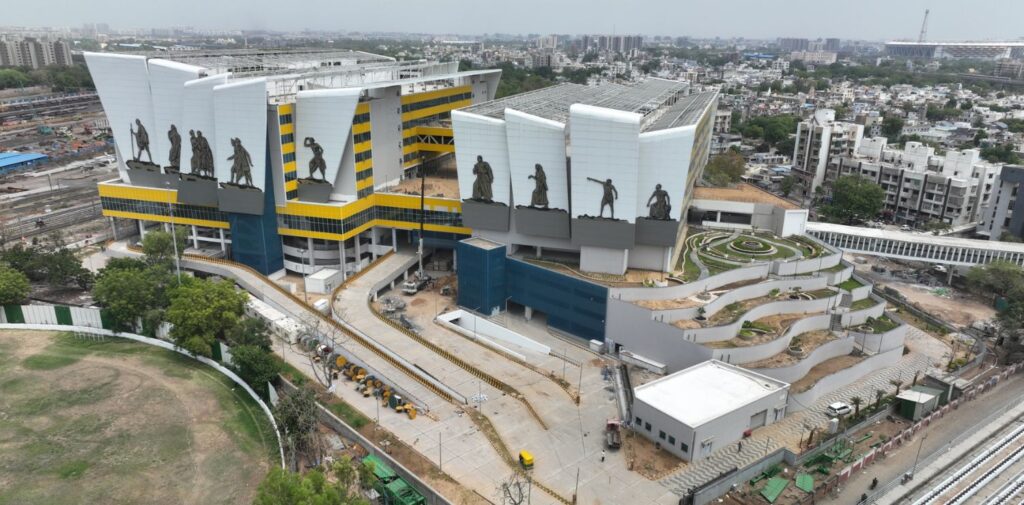When people think of India’s startup ecosystem, one city immediately comes to mind—Bengaluru. Often dubbed the “Silicon Valley of India,” Bengaluru has been home to many of the country’s top tech startups, a breeding ground for innovation, and a hub for venture capital. However, as the landscape of innovation expands, so does the need for other cities to rise as technology powerhouses. But if not Bengaluru, which city in India is deserving of the title “the next Silicon Valley”?
It’s time to broaden our horizons and look beyond Bengaluru. Several cities in India are not only rapidly developing but also carving their niche in the startup ecosystem. In this article, we’ll explore the potential contenders that could challenge Bengaluru’s title, and why it’s time we create multiple innovation hubs to fuel India’s growing tech and entrepreneurial landscape.
Bengaluru: The Current Giant
Before diving into alternatives, it’s essential to acknowledge what makes Bengaluru the powerhouse it is today. The city boasts a potent combination of world-class engineering talent, top educational institutions, a vibrant entrepreneurial culture, and a strong base of multinational corporations (MNCs). Major global tech companies such as Google, Microsoft, and Amazon have established their presence here, further attracting both talent and capital.
However, the city’s rapid growth has led to certain challenges. High costs of living, increasing traffic congestion, and a limited physical infrastructure are causing friction points for startups. With Bengaluru nearing its peak saturation, the need for a new technology hub becomes evident. Let’s explore which cities could emerge as the next Silicon Valley of India.

Hyderabad: The Next Logical Step
Hyderabad has long been a city of historical significance, but in the past decade, it has quickly transformed into a formidable player in India’s tech ecosystem. Companies like Microsoft, Google, and Facebook have all set up large campuses in Hyderabad, giving the city the nickname “Cyberabad.”
Hyderabad’s IT industry has seen remarkable growth, with significant investments in research, development, and technology services. The city has a high-quality infrastructure, lower living costs than Bengaluru, and a government that is actively promoting the growth of startups through initiatives like T-Hub—a startup incubator that fosters innovation and entrepreneurship.
Moreover, Hyderabad has become a center for pharmaceutical and biotech companies, expanding its technology sphere beyond just IT. With improved infrastructure, proximity to major business centers, and government policies that favor innovation, Hyderabad is perhaps the most natural successor to Bengaluru’s crown.
Pune: The Emerging Tech Giant
Often considered a smaller and quieter sibling of Mumbai, Pune is gradually emerging as one of India’s leading tech hubs. The city benefits from a steady stream of talent coming from its numerous prestigious educational institutions, including the University of Pune. It is also home to a booming IT sector, with companies such as Infosys, Wipro, and Cognizant having a strong presence in the city.
Pune offers a relatively low cost of living and is known for its peaceful, organized lifestyle. While it may not have the same level of venture capital investment as Bengaluru, Pune’s proximity to Mumbai, India’s financial capital, makes it a strong contender for entrepreneurs seeking funding. Moreover, Pune is growing as an automotive and engineering hub, thanks to the presence of companies like Tata Motors and Mercedes-Benz, making it an ideal location for startups specializing in hardware and IoT.

Chennai: A Hidden Powerhouse
Chennai is often overlooked when discussing India’s startup ecosystem, but the city has several advantages that make it a potential contender for the title of the next Silicon Valley. Chennai has a robust industrial base, strong educational institutions like the Indian Institute of Technology Madras (IIT-M), and a growing technology sector.
One of Chennai’s key strengths lies in its focus on hardware and manufacturing startups, especially those focused on the automotive and industrial sectors. The city has also been a leader in sectors such as healthcare technology and SaaS (Software as a Service).
The relatively affordable cost of living and the presence of a skilled workforce also make Chennai an attractive destination for startups. Initiatives like the Tamil Nadu Startup and Innovation Policy are also aimed at making Chennai a startup-friendly city.
Gurgaon: The Financial and Startup Hub
Gurgaon, now known as Gurugram, is one of India’s most rapidly growing cities. With its proximity to the capital, New Delhi, Gurgaon has attracted several MNCs and startups alike. The city has a robust infrastructure, excellent connectivity, and has become the epicenter of financial and tech-driven innovation in North India.
Gurgaon is home to a large number of successful Indian startups, including Zomato, PolicyBazaar, and Grofers. The presence of co-working spaces and startup accelerators has fueled its rapid growth as a startup destination. However, the city’s relatively high cost of living and erratic infrastructure could be seen as downsides. But, given its already-established startup ecosystem and international connectivity, Gurgaon remains a strong contender.

Mumbai: The Financial Powerhouse with Tech Potential
Mumbai, the financial capital of India, has always been a hub for business and trade. While not traditionally known for its tech scene, the city has seen a burgeoning startup culture in recent years. Startups in the fintech and media industries, such as Razorpay and Hotstar, have found great success in Mumbai.
The city’s advantage lies in its proximity to venture capital firms and financial institutions, making it easier for startups to secure funding. Mumbai also offers a melting pot of culture, talent, and ideas, which is an attractive proposition for entrepreneurs. However, the city’s high cost of living and lack of adequate space can be limiting factors for new businesses. Still, with its position as India’s financial heart, Mumbai cannot be overlooked in this discussion.
Ahmedabad: The Entrepreneurial Spirit of India
Ahmedabad may not have the IT clout of Bengaluru or Hyderabad, but what it lacks in tech prowess, it makes up for with its strong entrepreneurial culture. The city has been home to several successful startups and boasts a business-friendly environment, thanks to the proactive Gujarat government.
Ahmedabad’s low cost of living and a strong network of educational institutions like the Indian Institute of Management (IIM) make it an attractive place for budding entrepreneurs. The Gujarat International Finance Tec-City (GIFT City) is also positioning Ahmedabad as a global financial and tech hub, with incentives and infrastructure being developed to attract startups and financial institutions.

Kolkata: The Emerging Dark Horse
Kolkata is not typically associated with the tech world, but this eastern city is slowly catching up. The West Bengal government has been actively promoting the IT and startup ecosystem, with initiatives like the “Webel IT Park” and “Kolkata Ventures.” Additionally, the cost of living is relatively low, and the city has a large pool of educated talent, especially in fields like data science and analytics.
Conclusion: A Distributed Future
While Bengaluru continues to be India’s primary tech hub, the country is too vast and diverse to be limited to just one “Silicon Valley.” It’s time to look beyond Bengaluru and explore the potential of other cities that can contribute to India’s tech and startup ecosystem.
Each city discussed above has unique advantages, whether it’s Hyderabad’s rapid IT growth, Pune’s educational base, or Ahmedabad’s entrepreneurial spirit. A future where India has multiple tech hubs spread across different regions would not only drive innovation but also help distribute economic growth more evenly across the country.



